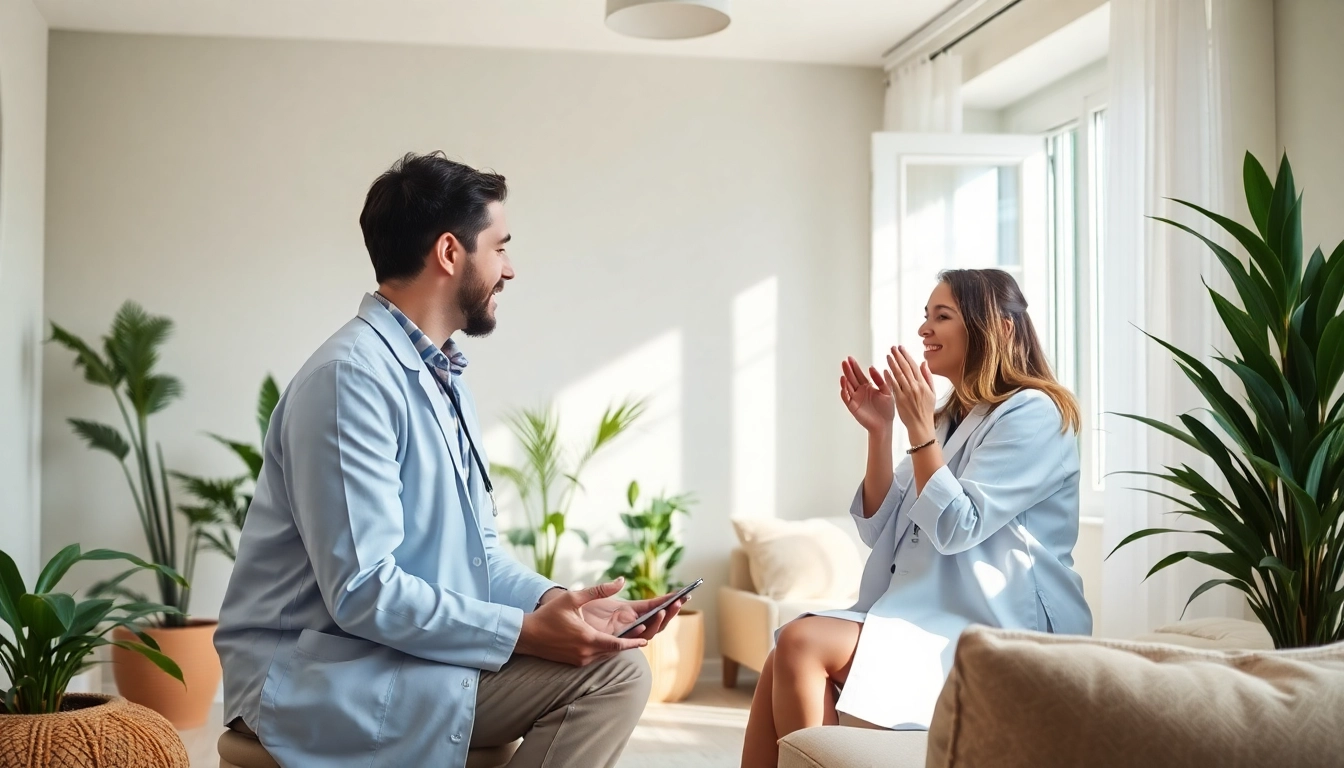
Understanding Anxiety: Causes and Symptoms
Overview of Anxiety Disorders
Anxiety is an emotional experience characterized by feelings of worry, fear, and apprehension. It is a natural response to stress and can manifest in various forms, such as generalized anxiety disorder (GAD), social anxiety disorder, panic disorder, and specific phobias. Each type of anxiety disorder has its unique triggers and symptoms, which can profoundly affect daily life.
In the United States, anxiety disorders affect millions of individuals, making it one of the most prevalent mental health issues. According to the Anxiety and Depression Association of America, approximately 40 million adults age 18 and older experience anxiety disorders, equating to around 18.1% of the population. Despite being highly treatable, only about 36.9% of those suffering receive treatment, highlighting a significant gap in effective management of these conditions.
Common Triggers for Anxiety
Anxiety disorders can be triggered by a combination of genetic, environmental, and psychological factors. Common triggers include:
- Stressful Life Events: Events such as job loss, divorce, or the death of a loved one can initiate overwhelming feelings of anxiety.
- Trauma: Past traumatic experiences can leave lasting effects, leading to heightened anxiety responses in similar future situations.
- Major Changes: Significant changes in life routines or transitions, such as moving to a new city or starting a new job, can trigger feelings of anxiety.
- Health Issues: Chronic illnesses or significant health changes can also incite anxiety about one’s health and future.
Recognizing Physical Symptoms of Anxiety
Recognizing the physical symptoms of anxiety is crucial for effective management. Common physical manifestations include:
- Increased heart rate
- Rapid breathing or difficulty breathing
- Muscle tension or headaches
- Gastrointestinal issues
- Fatigue or sleep disturbances
These physical symptoms often feed into the cycle of anxiety, where anxiety leads to physical symptoms, and physical symptoms lead to further anxiety. Understanding this cycle can empower individuals to take proactive steps in managing their anxiety.
Coping Mechanisms for Dealing with Anxiety
Practical Relaxation Techniques
Implementing relaxation techniques can significantly reduce anxiety levels. Here are a few you can incorporate into your routine:
- Deep Breathing: This technique involves slowly inhaling through the nose, holding the breath for a few seconds, and exhaling through the mouth. Deep breathing can help slow your heart rate and promote relaxation.
- Progressive Muscle Relaxation: This method entails tensing and then relaxing different muscle groups in the body, helping to release tension and foster a sense of calm.
- Visualization Techniques: Visualizing serene settings or imagery can create a mental escape from anxiety-inducing environments.
- Yoga and Meditation: Both activities promote mindfulness, reduce stress and enhance body awareness, all beneficial in managing anxiety.
Mindfulness and Cognitive Behavioral Therapy
Mindfulness and cognitive behavioral therapy (CBT) are powerful tools in managing anxiety. Mindfulness encourages individuals to focus on the present moment without judgment, which can help reduce anxiety’s grasp over thoughts. Engaging in mindfulness can be as simple as paying attention to your breath or observing your surroundings.
CBT, on the other hand, helps individuals identify and challenge negative thought patterns contributing to their anxiety. By reframing these thoughts, one can approach anxiety-causing situations with a healthier mindset. Integrating these practices into daily life can yield significant improvements over time.
Establishing a Healthy Daily Routine
Creating a structured daily routine provides predictability, which can alleviate anxiety. Here are some components to consider:
- Consistent Sleep Schedule: Prioritizing sleep hygiene—getting enough sleep, maintaining a consistent bedtime, and creating a comfortable sleeping environment—supports mental health and reduces anxiety.
- Regular Physical Activity: Engaging in physical exercise releases endorphins, natural mood lifters that can help alleviate anxiety. Aim for at least 30 minutes of moderate exercise several times a week.
- Balanced Nutrition: A healthy diet rich in fruits, vegetables, whole grains, and lean proteins can impact overall mood and energy levels.
Remember that consistency is key; establishing and adhering to a routine can help create a sense of control in your life.
Self-Care Practices to Manage Anxiety
The Importance of Regular Exercise
Regular exercise is a critical component of self-care for managing anxiety. It not only impacts physical well-being but also plays a significant role in mental health. Exercise increases the production of endorphins, which are known as ‘feel-good’ hormones that can help elevate mood and reduce stress.
Incorporating activities like walking, jogging, dancing, or even online workout classes can be highly beneficial. Aim for a mix of both aerobic exercises and strength training to optimize mental health benefits.
Nutrition’s Role in Mental Health
Nutrition impacts your mood and energy levels, affecting how you cope with stress and anxiety. Consuming a balanced diet rich in essential nutrients can contribute to better mental health. For instance, foods high in omega-3 fatty acids, such as fish and flaxseeds, and those rich in antioxidants, like berries, can promote brain health and function.
It’s essential to stay hydrated and avoid excessive consumption of caffeine and sugar, as these can exacerbate anxiety levels. Diarizing what you eat and how it affects your mood can provide insights and foster healthier eating habits.
Sleep Hygiene for Anxiety Management
Quality sleep is paramount for both physical and mental health. Poor sleep can increase anxiety symptoms, while adequate rest can bolster resilience against stress. To enhance sleep quality, consider the following:
- Maintain consistent sleep and wake times.
- Create a relaxing bedtime routine that steps down from daytime activity.
- Limit screen time before bed to reduce exposure to blue light, which can interfere with sleep.
- Ensure your sleep environment is comfortable, dark, and cool.
Implementing these practices can help regulate your body’s internal clock and improve sleep quality, ultimately leading to better anxiety management.
Seeking Professional Help for Dealing with Anxiety
When to Consult a Mental Health Professional
Knowing when to seek professional help is crucial in effectively managing anxiety. Signs that it may be time to consult a healthcare provider include:
- Persistent feelings of anxiety that interfere with daily activities.
- Experiencing severe panic attacks.
- Having trouble controlling worrying thoughts.
- Engaging in avoidance behaviors to escape anxiety-inducing situations.
- Noticing increased reliance on alcohol or substances to cope.
If anxiety starts to impact your social, work, or personal life, consider connecting with a mental health professional.
Types of Therapy Available
Several therapy options can effectively address anxiety disorders. Some of the most common include:
- Cognitive Behavioral Therapy (CBT): Focuses on changing negative thought patterns and behaviors associated with anxiety.
- Exposure Therapy: Gradually exposes individuals to anxiety-inducing situations in a controlled manner to reduce fear over time.
- Dialectical Behavior Therapy (DBT): Combines cognitive-behavioral techniques with mindfulness practices to develop emotional regulation skills.
- Acceptance and Commitment Therapy (ACT): Encourages acceptance of feelings and commitment to personal values, enhancing psychological flexibility.
Exploring different therapeutic approaches can help determine which is most effective for individual needs.
Medication as a Treatment Option
In some cases, medication may be necessary to manage anxiety. Various classes of medications can help alleviate symptoms, including:
- Selective Serotonin Reuptake Inhibitors (SSRIs): Often prescribed as first-line treatment for anxiety disorders.
- Serotonin-Norepinephrine Reuptake Inhibitors (SNRIs): Another class of antidepressants that effectively manage anxiety.
- Benzodiazepines: These can provide immediate relief for anxiety symptoms but are typically prescribed for short-term use due to the risk of dependence.
Working closely with a healthcare provider to determine the most appropriate medication regimen, if needed, is vital as part of a comprehensive approach to managing anxiety.
Community and Support Resources for Anxiety
Finding Support Groups and Networks
Connecting with others who understand your experiences can be immensely supportive. Consider seeking out local or online support groups for individuals dealing with similar challenges. Support groups can provide a safe space to share experiences, learn coping strategies, and gain community support which can be vital for growth and healing.
Online Resources and Hotlines
Several organizations provide valuable online resources and helplines for individuals dealing with anxiety. The National Alliance on Mental Illness (NAMI) and the Anxiety and Depression Association of America (ADAA) offer information and connects users with local resources and support systems. These platforms can serve as critical lifelines for those navigating anxiety.
Apps and Tools for Managing Anxiety
In the digital age, numerous applications can help in managing anxiety. These apps often provide features such as:
- Meditation exercises
- Guided breathing techniques
- Daily mood tracking
- Stress management strategies
Some popular mental health apps include Calm, Headspace, and Moodfit. Engaging with these tools regularly can reinforce the strategies learned in therapy and enhance self-management of anxiety.
In summary, overcoming anxiety involves a multi-faceted approach, integrating self-care practices, professional help, and community support. Understanding the nuances of anxiety allows individuals to develop effective coping strategies, leading to a more fulfilling life. Addressing anxiety proactively can empower those experiencing it to reclaim control and reduce its impact on their daily lives. If you or someone you know is struggling with anxiety, seeking help and resources available at dealing with anxiety can pave the way for healing and recovery.





